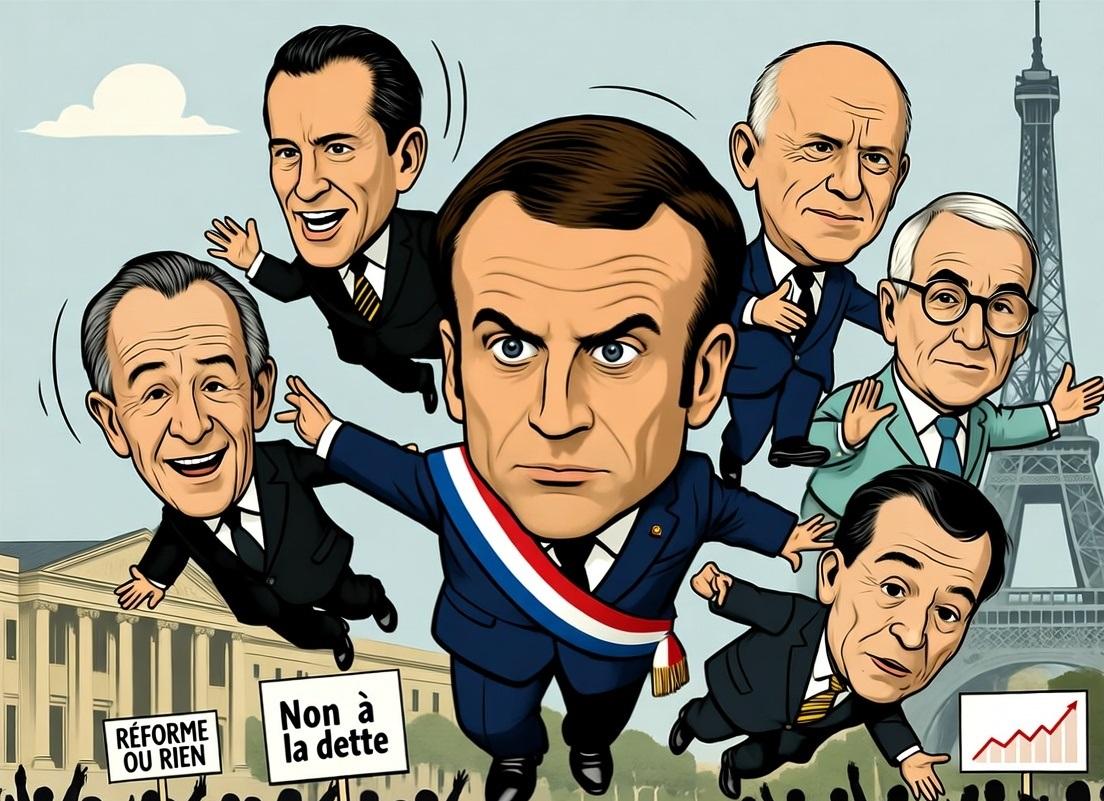Ah, France—the land of fine wine, philosophical musings, and apparently, the world’s most unstable game of musical chairs. If you’ve been following the news from Paris, you might think the Fifth Republic has devolved into a bad sitcom: Prime Ministers Who Last Less Time Than a Baguette Stays Fresh. Just yesterday, on October 6, 2025, Sébastien Lecornu, the freshly minted Prime Minister, threw in the towel after a whopping 27 days on the job—making him the shortest-serving PM in modern French history. He didn’t even make it through his first cabinet meeting without the whole thing imploding. C’est la vie, or should I say, c’est la farce?
Let’s rewind this comedy of errors for a moment, because the facts are almost too absurd to be believed. It all kicked off last summer when President Emmanuel Macron, in a fit of what can only be described as electoral hubris, called snap parliamentary elections in June 2024. His centrist alliance, Ensemble, got walloped, losing its absolute majority and leaving the National Assembly a fractured mess: the far-right National Rally holds 138 seats, Macron’s bloc clings to 91, and the left-wing coalitions (including La France Insoumise and the Socialists) scrape together the rest in a chaotic patchwork. Since Macron’s re-election in 2022, this has been the seventh PM shuffle—fifth in two years, to be precise. Lecornu’s predecessor, François Bayrou, lasted a bit longer but met the same fate: ousted in a no-confidence vote on September 8, 2025, by a whopping 364-194 margin, thanks to an unholy alliance of left and far-right lawmakers furious over austerity plans to tackle France’s ballooning debt. Before him? Michel Barnier, bounced after three months. It’s like Macron is running a revolving door at the Hôtel Matignon, auditioning executives for a job that comes with a built-in expiration date.
From the outside, it’s hilarious in that dark, Monty Python-esque way. Lecornu, a 39-year-old Macron loyalist and former defense minister, steps up on September 9, 2025, promising to “break” with the failed strategies of his predecessors and pass a 2026 budget amid a debt crisis that’s got France’s public tab at €3.346 trillion—114% of GDP as of Q1 2025. He unveils his cabinet on October 5, recycling old faces like ex-Finance Minister Bruno Le Maire (now at Defense, because why not demote the guy blamed for the deficit explosion?). Cue the backlash: Allies cry betrayal for not going bold enough, opponents on the left (like Socialist spokesperson Arthur Delaporte) decry “Macronism plunging the country into chaos” on X, and far-right firebrand Marine Le Pen calls for dissolving the Assembly—again. Hours later, Lecornu resigns, blaming “partisan appetites” and “egos” in a courtyard speech that sounds like a rejected script from The Crown. French stocks tanked 1.6% (CAC 40), the euro dipped 0.7% against the dollar, and bond yields spiked—because nothing says “stable democracy” like a market panic over a PM who couldn’t outlast a Netflix binge.
To the average French citizen scrolling through this on their morning croissant break, it’s peak absurdity—a national joke that’s as exhausting as it is entertaining. Protests erupt over cost-cutting (remember the strikes against pension reforms?), lawmakers bicker like kids in a sandbox, and Macron? He’s holed up in the Élysée, refusing to call snap elections or step down until his term ends in May 2027, leaving the country in what one analyst called “crisis mode again.” It’s the kind of chaos that makes you laugh to keep from crying: How do you govern when no one can agree on the color of the tablecloth?But here’s where the punchline curdles into something far less funny. Beneath this clown show lurks a more sinister script—one where the endless drama serves as exquisite misdirection for Macron’s creeping consolidation of power, a hidden dictatorship taking deeper root while the circus distracts the audience. Let’s peel back the greasepaint.
Fact: Macron’s 2024 snap election gamble wasn’t just a blunder; it was a calculated risk that backfired spectacularly, yet it handed him a parliament too divided to challenge him effectively. With no stable majority, he can appoint and discard PMs like disposable allies—Bayrou, Barnier, Lecornu—all Macronists or centrists who toe the line on his fiscal orthodoxy, even as they crash and burn. This isn’t democracy in action; it’s a de facto veto on real opposition. As opposition voices like Mathilde Panot of La France Insoumise point out, these “ephemeral governments” only prove Macron’s refusal to appoint anyone who might actually defy him. Meanwhile, the debt crisis festers—servicing costs eat up 7% of state spending—with no budget passing, forcing a “continuation budget” for 2026 that locks in austerity without debate.
Dig deeper, and the authoritarian undertones emerge. Macron’s track record? A 2023 immigration law tightening borders with far-right support, pension age hikes rammed through via Article 49.3 (bypassing votes), and a state of emergency-lite during Yellow Vest protests that expanded surveillance powers. Now, amid geopolitical jitters (Ukraine aid, EU fractures), this PM carousel keeps the spotlight on petty squabbles while executive overreach solidifies. Lecornu’s exit? It buys Macron time to float a technocrat or pivot to a “grand coalition” on his terms, all without dissolving the Assembly or facing voters. Critics on the left whisper of a “soft dictatorship,” where chaos masks the erosion of checks and balances—parliament gridlocked, media fixated on resignations, public too fatigued for revolt.In the end, France’s “drama” is both: a laugh-out-loud joke that’s left citizens rolling their eyes and a velvet glove over an iron fist, deepening Macron’s unaccountable grip. As Lecornu himself quipped in resignation, “It would take little for it to work.” But until someone pulls the plug on this farce, the real work—of reclaiming a republic from the shadows—remains undone. What’s your take? Is it comedy gold, or cause for alarm? Drop a comment below.
Sources: NPR, Al Jazeera, Reuters, The New York Times, CNN, The Guardian, and more—because even in chaos, facts matter.
